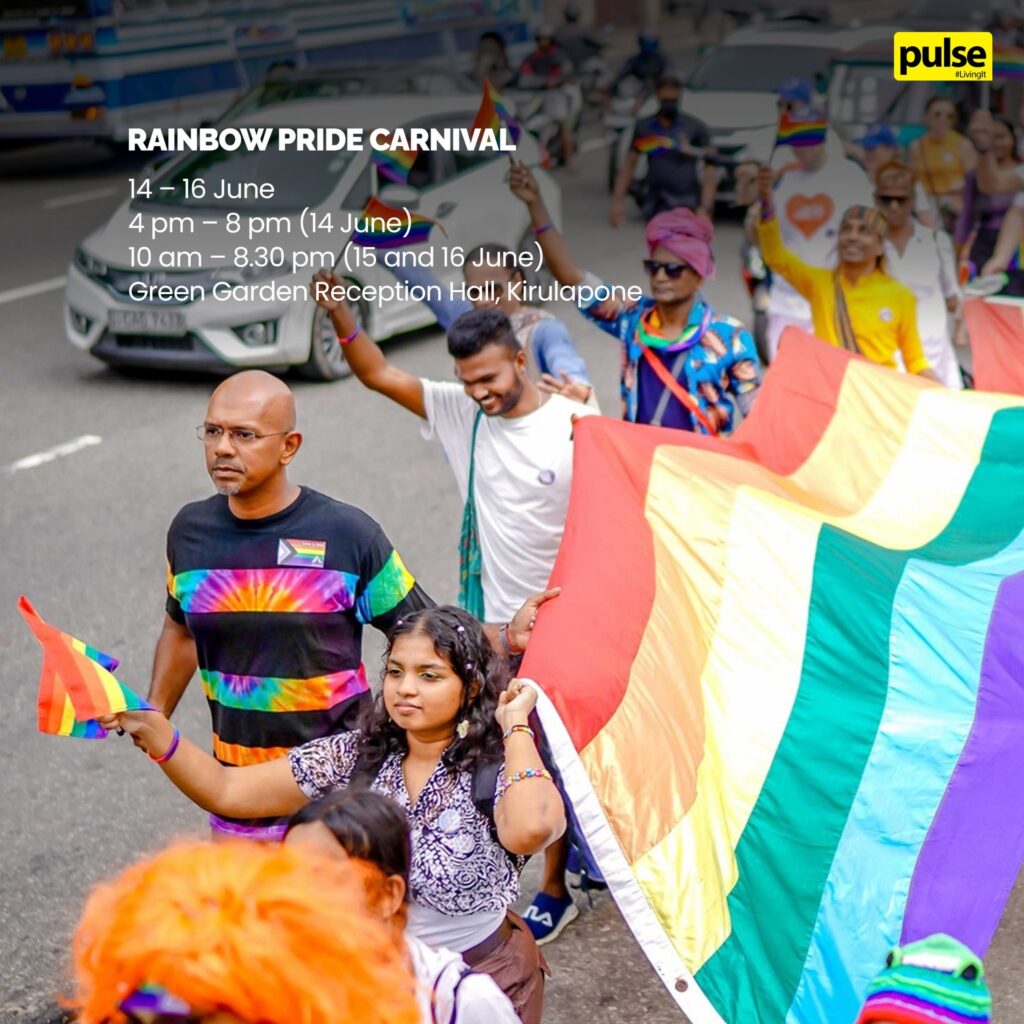By: Isuru Parakrama
July 01, Colombo (LNW): The Stonewall Riots, which took place in the early hours of June 28, 1969, are widely recognised as a seminal moment in the fight for LGBTQIA+ rights.
The events that unfolded at the ‘Stonewall Inn’ in New York City’s ‘Greenwich Village’ not only sparked a wave of activism in the United States but also resonated globally, setting the stage for the modern LGBTQIA+ rights movement.
This spontaneous act of defiance against systemic oppression marked the beginning of what we now know as PRIDE. However, over the decades, the true meaning of PRIDE has been overshadowed by the commercialisation of rainbow-themed festivities, transforming a profound protest into a marketable event.
As we reflect on this historic event, it is crucial to appreciate its context, its impact, and the legacy it has left behind.

A Time of Persecution and Resilience
In the 1960s, queer individuals faced severe discrimination and legal challenges in the United States. Same-sex sexual acts were criminalised, and queer people were frequently harassed by law enforcement. Bars and clubs that catered to LGBTQIA+ clientele were often the targets of police raids, resulting in arrests and public shaming. The Stonewall Inn was one such establishment, a refuge for many in the queer community – many of whom were drag queens, gay men, transvestites and queer-identified sex-workers – who had nowhere else to go.
Despite these oppressive conditions, the community showed remarkable resilience. The Stonewall Inn, whilst not legally operating as a gay bar, provided a sanctuary where people could express themselves without fear. However, this sense of safety was shattered when police conducted a raid in the early hours of June 28, 1969.

The Night of the Riots
On that fateful night, the police raid on the Stonewall Inn was met with unexpected resistance. Patrons of the bar, fed up with the constant harassment and discrimination, fought back. As police attempted to arrest bar-goers, the crowd outside the bar grew larger and more defiant. What began as a routine raid quickly escalated into a full-scale riot.
For solid six nights, protests and clashes with police continued in the streets of Greenwich Village. The riot was a spontaneous act of defiance against systemic oppression, a cry for dignity and equal rights. It marked a turning point, transforming the LGBTQIA+ community from passive victims of discrimination to active fighters for their own liberation.

The Aftermath and Birth of a Movement
The Stonewall Riots served as a catalyst for the queer rights movement. In the wake of the riots, numerous LGBTQIA+ activist groups were formed, including the Gay Liberation Front and the Gay Activists Alliance. These organisations sought to harness the momentum from Stonewall to push for legislative and societal change.
The first anniversary of the Stonewall Riots was marked by the inaugural Christopher Street Liberation Day march, held on 28th June 1970. This event is now recognised as the first Gay Pride parade. The march drew thousands of participants and signalled the beginning of annual Pride celebrations worldwide.
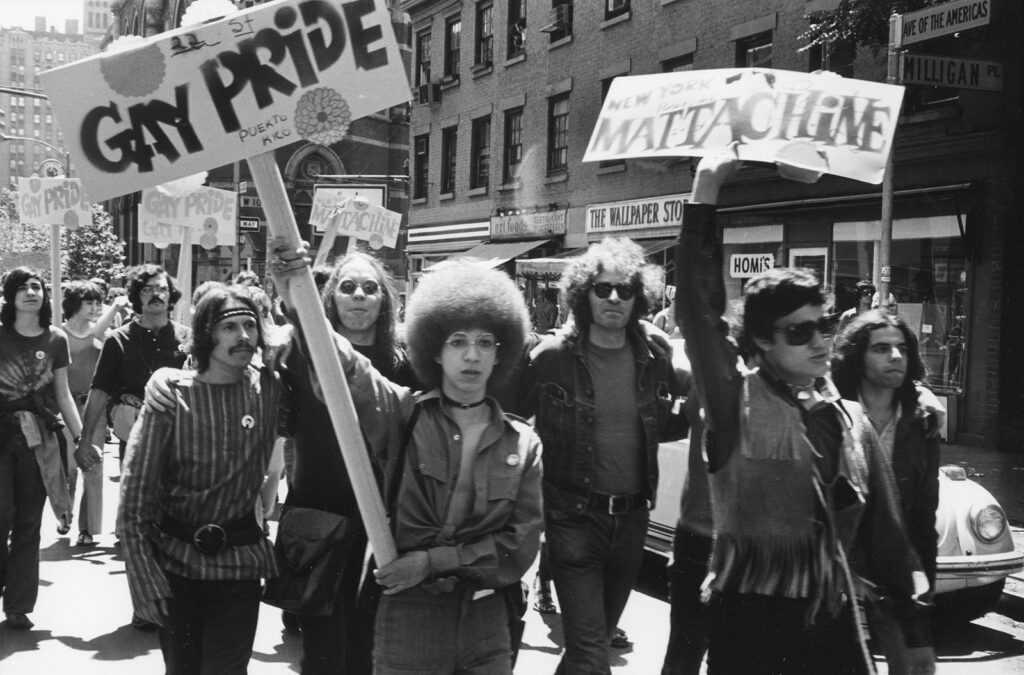
Legacy and Continued Relevance
The Stonewall Riots have left an indelible mark on the struggle for queer rights. They symbolise the fight against injustice and the power of collective action. Each year, Pride celebrations around the world commemorate the spirit of Stonewall, reminding us of the progress made and the challenges that remain.
In 2016, then US President Barack Obama designated the Stonewall Inn and surrounding areas as a National Monument, recognising their significance in American history. This designation underscored the importance of preserving and honouring the legacy of those who stood up against oppression.
However, the fight for equality is far from over. Whilst significant strides have been made in many countries, queer individuals still face discrimination and violence. The spirit of Stonewall continues to inspire activists to push for full equality and acceptance.
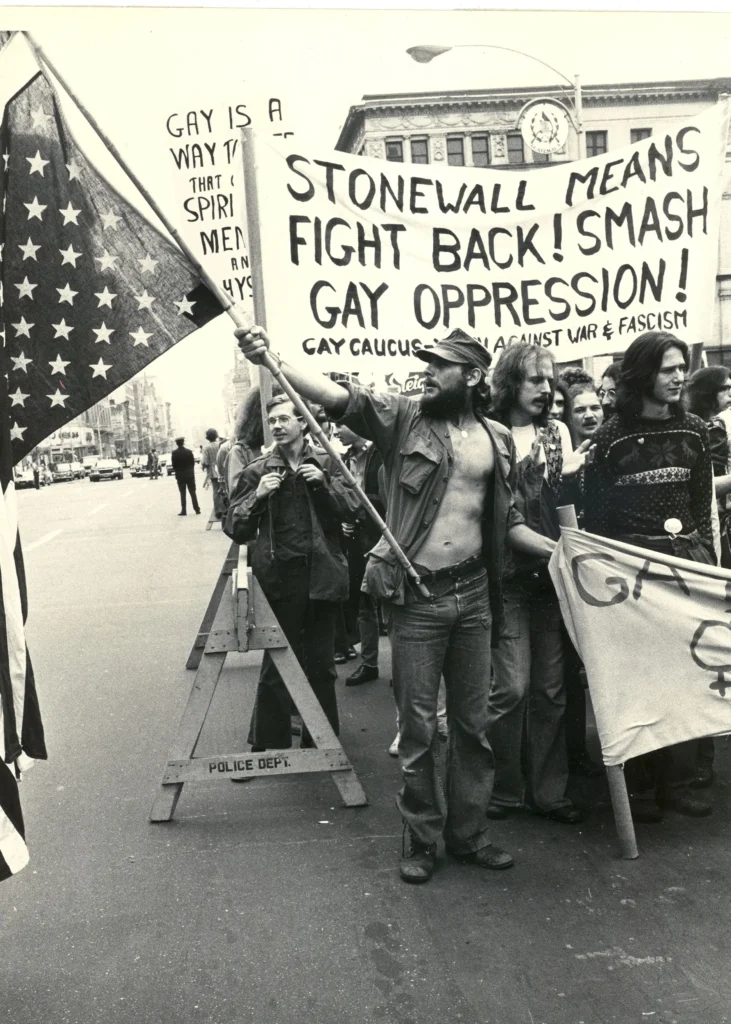
The Commercialisation of PRIDE
In recent years, PRIDE has evolved into a global celebration marked by parades, parties, and rainbow-themed merchandise. Whilst visibility and celebration are crucial, there is a growing concern that the essence of PRIDE is being diluted by commercial interests.
Corporations flood the market with rainbow-coloured products, and businesses vie to participate in PRIDE events, often without a genuine commitment to supporting LGBTQIA+ rights beyond the month of June.
This commercialisation can overshadow the original intent of PRIDE as a protest and a call for equality. When the focus shifts to marketing and profit, the important messages of activism and solidarity can become secondary.
The rainbow flag, once a symbol of struggle and unity designed by the brilliant vexillographer Gilbert Baker, risks becoming a tool for corporate branding rather than a representation of the fight for equal rights.
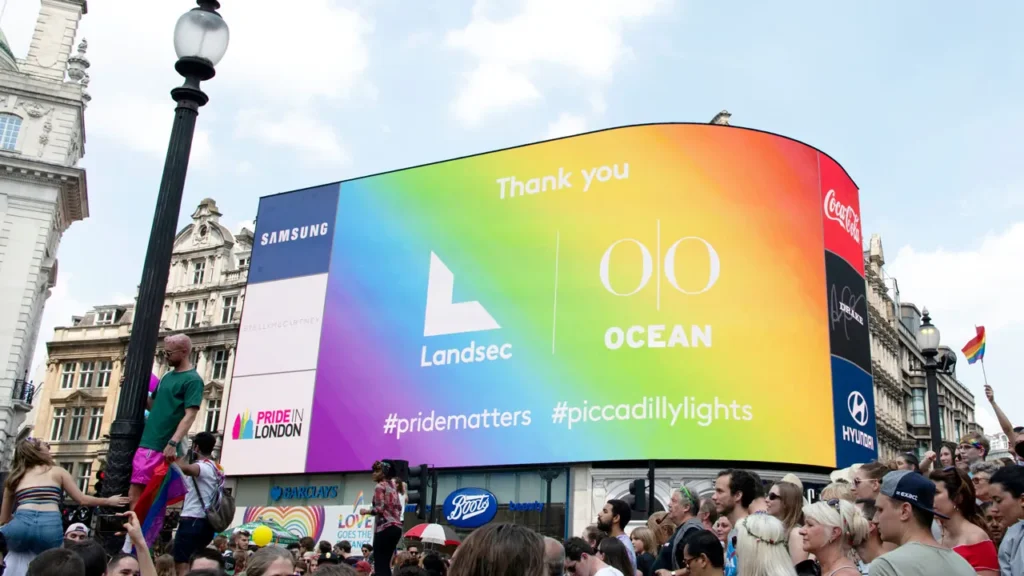
PRIDE as a Commercial Weapon?
The utilisation of PRIDE as a commercial weapon raises several issues. On one hand, it can increase visibility and normalise queer identities, contributing to greater acceptance in society, but on the other, it can lead to “pink-washing,” where companies [not to mention certain politicians] superficially support the LGBTQIA+ community during PRIDE month without enacting meaningful policies or practices that support queer rights year-round.
This selective engagement can be seen as exploitative, using PRIDE as a marketing strategy rather than a genuine effort to support the community.
It also risks alienating those who feel that the commercial aspects of PRIDE are overshadowing the real issues still facing the queer community, such as discrimination, violence, and inequality.
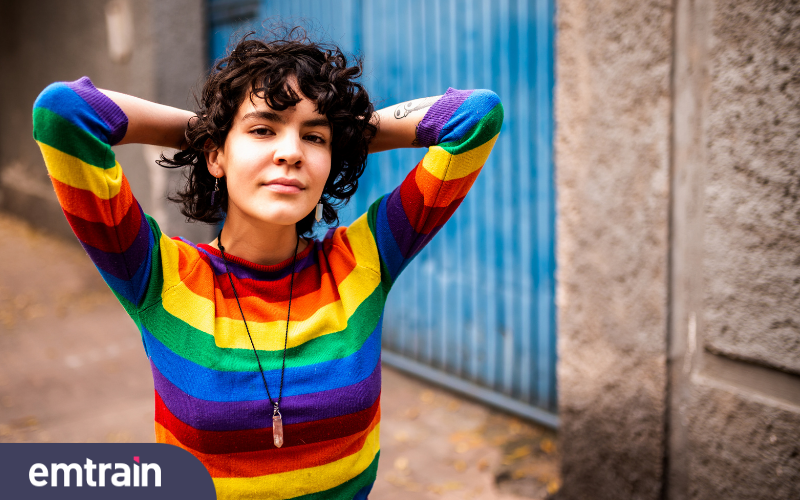
Did ‘Aragalaya‘ hijack PRIDE, or is it the other way round?
The controversy surrounding Sri Lanka being divided of opinions within the LGBTQIA+ community often leads to political influence, exhibiting PRIDE events being separately held by different local entities, having no corporation with each other. Despite the growing influence in the legislative framework positively contributing to the well-being of queer individuals, the Sri Lankan law is still being misinterpreted to having queer individuals persecuted under the abuse of sections 365, 365A and 399 of the Penal Code, and clauses evident in sections 2, 7, and 9 of the Vagrants Ordinance. In the event that the solemn truth of queers only being part of a much larger intersectional struggle of marginalised communities in Sri Lanka cannot be overlooked, PRIDE events, either stemmed from political influence or otherwise, should interact with each other, were they to regain liberation.
Reclaiming the True Meaning of PRIDE
To honour the true meaning of PRIDE, it is essential to remember its roots in the Stonewall Riots and the ongoing struggle for LGBTQIA+ rights. PRIDE should be a time to reflect on the progress made and the work still needed to achieve full equality. It should be a platform for activism, education, and solidarity, not just a commercial opportunity.
Individuals and organisations can contribute to reclaiming PRIDE by supporting LGBTQIA+ rights throughout the year, not just in June. This includes advocating for inclusive policies, supporting queer-based charities and organisations, and fostering environments where all individuals can live authentically and without fear.
As we remember the Stonewall Riots, it is essential to honour the bravery of those who resisted oppression and sparked a movement. Their actions on that night in June 1969 changed the course of history, paving the way for future generations to live more freely and openly.
The legacy of Stonewall is a reminder that the struggle for equality requires courage, solidarity, and persistence. It calls on us to continue the fight for a world where everyone, regardless of their sexual orientation, gender identity, gender expression, or sex characteristics (SOGIESC), can live with dignity and respect.
